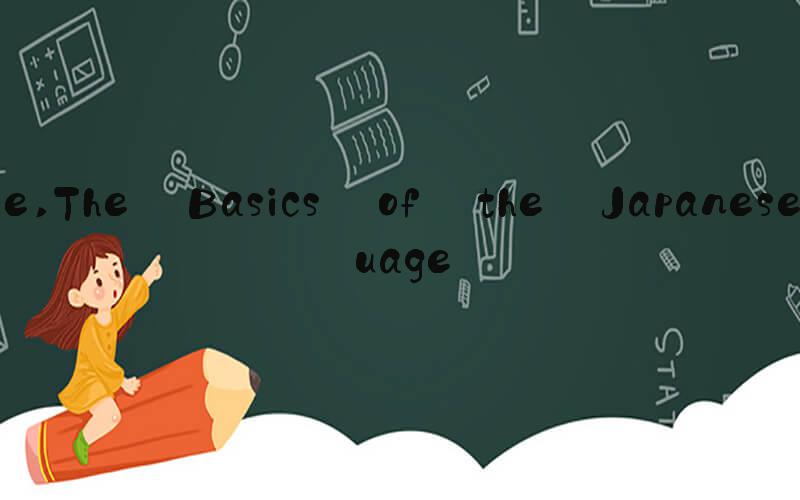AI答案
 Japanese: A Language and Culture Rich in History
Japanese: A Language and Culture Rich in HistoryJapanese, or "Nihongo" as it's known in Japan, is a language and culture that have attracted the world's attention. With its intricate writing system and unique culture, Japan has inspired countless people to learn the language and immerse themselves in its rich traditions. Here's a closer look at this fascinating language and culture:
The Basics of the Japanese LanguageJapanese is a complex language that has its roots in Chinese characters. The language has three writing systems: kanji, hiragana, and katakana. Kanji consists of Chinese characters and is used for nouns, verbs, and adjectives. Hiragana and katakana are syllabaries, meaning each character represents a syllable. Hiragana is used for particles, verb endings, and little words, while katakana is used for foreign words and the names of animals and plants.
Japanese grammar is also unique. Word order is usually subject-object-verb, meaning that the subject comes first, followed by the object and then the verb. However, there are exceptions, such as when asking a question or making a negative statement.
The Culture of JapanJapan has a culture that is steeped in tradition and customs. The Japanese place a high value on respect and politeness, which is evident in their forms of address and communication styles. In Japanese culture, it's important to show respect to your elders, superiors, and teachers.
The Japanese also have a love of nature and the seasons. For example, the cherry blossom, or "sakura," is a symbol of spring in Japan, and the beauty of the changing leaves in autumn, or "koyo," is celebrated with festivals and events across the country.
The Influence of Japanese Culture on the WorldJapanese culture has had a significant impact on the world. From anime and manga, which have become popular worldwide, to cuisine, technology, and fashion, Japan's influence is felt across the globe. The country has produced some of the most iconic brands, such as Sony and Nintendo, and is known for its innovative technology and design.
Japanese cuisine is also popular worldwide, with sushi and ramen being among its most well-known dishes. The Japanese have a unique approach to food, which emphasizes freshness, presentation, and simplicity. The use of chopsticks is also a part of Japanese dining culture, which has become popular in many parts of the world.
The Future of JapaneseDespite its complex writing system and grammar, Japanese continues to attract learners from all over the world. In recent years, Japan has been actively promoting the study of the language to people around the world, and there has been a significant increase in the number of Japanese learners globally.
As Japan continues to be a key player in the global economy, the demand for Japanese language skills is likely to increase. More and more companies are seeking employees who can speak Japanese, as they look to expand their business in Japan and explore new opportunities in the Asia-Pacific region.
ConclusionJapanese is a language and culture that is rich in history, tradition, and innovation. From its intricate writing system to its unique customs and cuisine, Japan has inspired people around the world to learn the language and explore its rich cultural heritage. As Japan continues to play a key role in the global economy and cultural landscape, the future looks bright for those interested in studying the Japanese language and culture.
